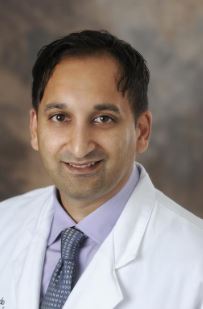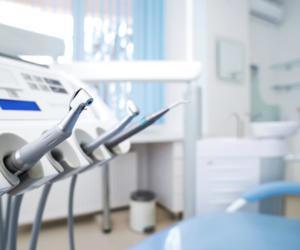“Why does my dentist need to know if I've had radiation therapy?”
I had radiation therapy several years ago for a tumor in my jaw. My dentist wants the details on the radiation before I can have a procedure done. Why is this?
15 Answers
RadiationOncologistGeneralDentistry
Radiation can weaken bone and cause it to be slow to heal. If that part of the jaw that received radiation was to a high enough dose and is where the dental work is needed, depending on the procedure required, you could have slow or poor wound healing. The dentist will want to know: what part of the jaw received radiation, to what dose, and how long ago. The radiation department where you were treated should be able to provide that information, if it wasn’t too many years ago. Most departments retain such records for at least 7-10 years in storage. Some much longer.
Good luck getting the information and with your dental procedure.
Good luck getting the information and with your dental procedure.
The risk is for radio necrosis and excessive cavities, which could put all the teeth in jeopardy. For the former question, one would be sure that there is no exposed bone and that if extractions or other procedures need to be done that there is mucosal covering of any operative site. For xerostomia (dry mouth), which can occur if the salivary glands needed to be treated appropriate conservative measures be employed, especially aggressive fluoride treatments.
Prior radiation to the head and neck area is an important when seeing your dentist. Your dentist will want to ensure that any dental procedures that are required are outside the treated area. If there are teeth within the previously treated area, he or she may approach it more cautiously as healing can be impaired.
Radiation treatments to your mouth and especially the jaw would make healing much more difficult and risk having some of the bone die. Usually, I would request that the dentist call me and discuss what work is to be done.
This is important because radiation to the jaw can impact healing after dental procedures or risk of infection or complications from dental surgery.
Because with the blood supply in the area may be change and increase risk of radionecrosis of jaw bone.
Any surgical procedure on radiated bone may lead to the condition called Osteonecrosis, means bone destruction.
To prevent this problem you may undergo Hyperbaric Oxygenation Therapy (usually available at the wound care centers) prior to any dental procedure.
To prevent this problem you may undergo Hyperbaric Oxygenation Therapy (usually available at the wound care centers) prior to any dental procedure.
Radiation therapy causes narrowing and obliteration of small blood vessels that is permanent. The consequence of this change is the possibility of healing slowly.Therefore your dentist needs to know this information so he can plan for this possibility
Your jaw does not heal as well after Radiation Rx. , so your Dentist needs to know that you have had Radiation Rx.
There are side effects that could occur after having had radiation and having teeth extracted from the jaw. Patients that has exceeded a certain dose of radiation to the jaw, can have osteoradionecrosis which would be a nonhealing ulcer after the tooth is extracted. A dentist needs to know this ahead of time so if the patient is at risk for osteoradionecrosis then the patient needs to have hyperbaric oxygen treatment before and after the dental extraction.
Any invasive procedure such as extraction of teeth may induce necrosis of jaw if the patient has received radiation therapy over 50 Gy to the area within 2 years.
There is a complication called osteoradionecrosis of the jaw that can occur when a tooth is pulled. Quite simply, the tooth is pulled and the bone doesn't have the blood supply to heal and fill in the hole. There is a radiation dose level below where we don't see this happen, around 30-35 Gy. If the tooth to be pulled or part of jaw to be drilled is in a high-risk area where a high dose of radiation was deposited, we usually treat patients with hyperbaric oxygen to help increase oxygen levels in the wound to help the bone heal. It's always better to know this ahead of time than to be caught unawares. I would put him in touch with your radiation oncologist so the radiation oncologist can make specific recommendations as to if any precautions need to be taken.
Radiation to the jaw can affect ability of the jaw to heal from extraction of teeth. If there was a large dose of radiation given, certain dental procedures could be contraindicated.
One of the long term effects of radiation therapy is damage to tiny blood vessels that permeate through mucosal tissue, such as that of the cheek, gums, teeth, etc. Since it is these small vessels that bring healing cells and nutrients to the gum and jaw tissue, the ability to heal in that area is reduced. What would be a normal procedure with minimal risk, might result in slow healing or even death of the tissue affected by the dental procedure.
Perhaps the most severe of which is "osteoradionecrosis". This is when the area of the jaw bone that was in the radiation treatment field cannot heal at all from the dental procedure and actually dies. This situation can require special methods to help your body heal such as hyperbaric oxygen or, in some situations, a fairly big surgery to remove part of the jaw bone.
Perhaps the most severe of which is "osteoradionecrosis". This is when the area of the jaw bone that was in the radiation treatment field cannot heal at all from the dental procedure and actually dies. This situation can require special methods to help your body heal such as hyperbaric oxygen or, in some situations, a fairly big surgery to remove part of the jaw bone.













